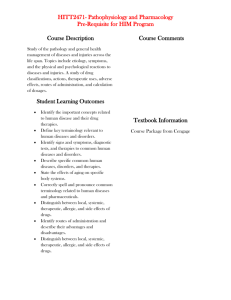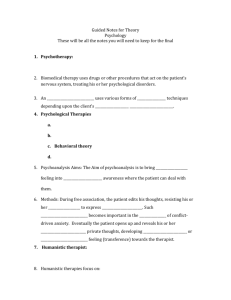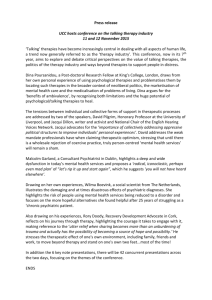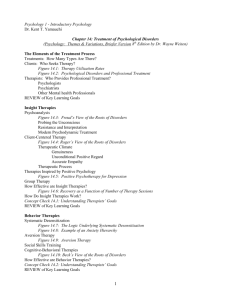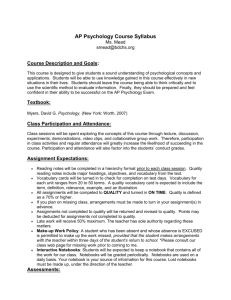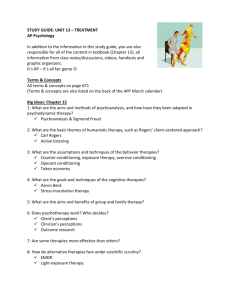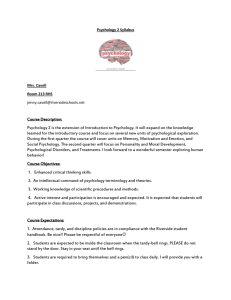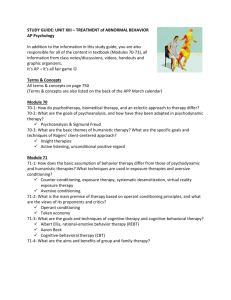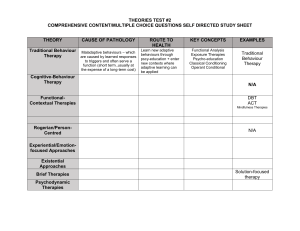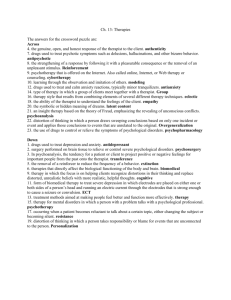Unit 13 DG
advertisement
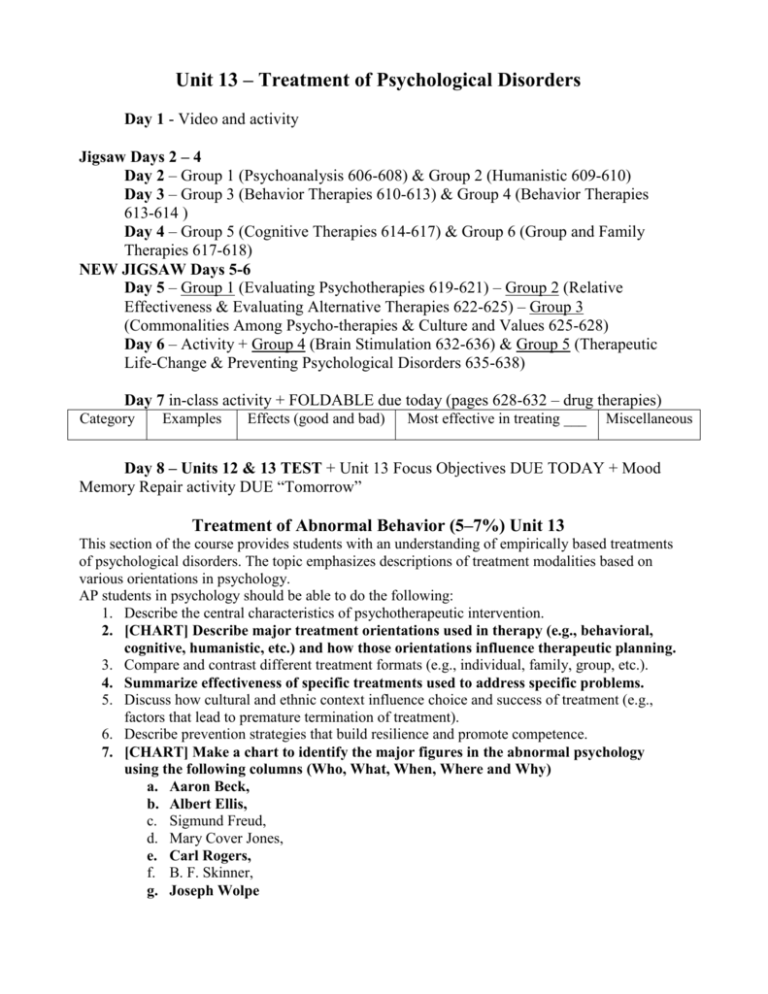
Unit 13 – Treatment of Psychological Disorders Day 1 - Video and activity Jigsaw Days 2 – 4 Day 2 – Group 1 (Psychoanalysis 606-608) & Group 2 (Humanistic 609-610) Day 3 – Group 3 (Behavior Therapies 610-613) & Group 4 (Behavior Therapies 613-614 ) Day 4 – Group 5 (Cognitive Therapies 614-617) & Group 6 (Group and Family Therapies 617-618) NEW JIGSAW Days 5-6 Day 5 – Group 1 (Evaluating Psychotherapies 619-621) – Group 2 (Relative Effectiveness & Evaluating Alternative Therapies 622-625) – Group 3 (Commonalities Among Psycho-therapies & Culture and Values 625-628) Day 6 – Activity + Group 4 (Brain Stimulation 632-636) & Group 5 (Therapeutic Life-Change & Preventing Psychological Disorders 635-638) Day 7 in-class activity + FOLDABLE due today (pages 628-632 – drug therapies) Category Examples Effects (good and bad) Most effective in treating ___ Miscellaneous Day 8 – Units 12 & 13 TEST + Unit 13 Focus Objectives DUE TODAY + Mood Memory Repair activity DUE “Tomorrow” Treatment of Abnormal Behavior (5–7%) Unit 13 This section of the course provides students with an understanding of empirically based treatments of psychological disorders. The topic emphasizes descriptions of treatment modalities based on various orientations in psychology. AP students in psychology should be able to do the following: 1. Describe the central characteristics of psychotherapeutic intervention. 2. [CHART] Describe major treatment orientations used in therapy (e.g., behavioral, cognitive, humanistic, etc.) and how those orientations influence therapeutic planning. 3. Compare and contrast different treatment formats (e.g., individual, family, group, etc.). 4. Summarize effectiveness of specific treatments used to address specific problems. 5. Discuss how cultural and ethnic context influence choice and success of treatment (e.g., factors that lead to premature termination of treatment). 6. Describe prevention strategies that build resilience and promote competence. 7. [CHART] Make a chart to identify the major figures in the abnormal psychology using the following columns (Who, What, When, Where and Why) a. Aaron Beck, b. Albert Ellis, c. Sigmund Freud, d. Mary Cover Jones, e. Carl Rogers, f. B. F. Skinner, g. Joseph Wolpe
